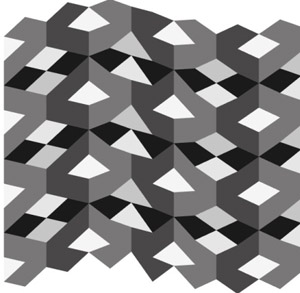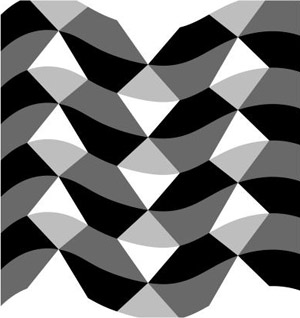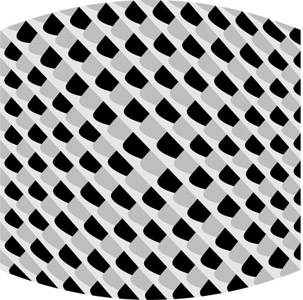Pattern Deformations Extended
Unlike the classical Pattern Deformations assignment discussed here and here, this time we asked Design Geometry students in 2014 to explore deformations by using referential systems as a secondary space. We wanted them to create variations on a regular pattern only by deforming its underpinning lattice. Below are three examples of this alternative assignment. I’m thinking about improving this exercise to three dimensions, seems possible to implement by using the cage editing commands of Rhino.

Selin Işıldar

Serra Uludağ

Mine Güvenç
The exercises such as Pattern Deformations make it easy for students to learn to use the CAD tool. At the same time, they introduce the mentality of geometric systems into this training. Therefore, it is becoming a significant research topic to introduce students of architecture to systems thinking. This can be done in the form of patterns and their deformations. Zaera-Polo (2019) depicts, the history of pattern studies in architecture, emphasizing a conceptual shift in the “Computational Design Era”. This conceptual shift can be explained by the development of digital design technology. That is “making it possible to process multiple layers of patterns such as social, economical, cultural, formal, etc., and their deformations simultaneously with desired precision” (Oxman and Oxman, 2019).
The integration of these exercises with the interdisciplinary roles of the architect continues to be one of the issues of every curriculum, studio, and instructor. Thus, it is an open question of how future design studios will take over this issue. Especially from the point left by William Huff and the Parquet Deformation.
Alejandro Zaera-Polo, “Patterns, Fabrics, Prototypes, Tessellations”, Architectural Design 79, Wiley (United Kingdom, 2009): pp. 18-27.
Rivka Oxman and Robert Oxman, “The New Structuralism: Design, Engineering, and Architectural Technologies”, Architectural Design 206, Wiley (United Kingdom, 2019): pp. 15-24.








